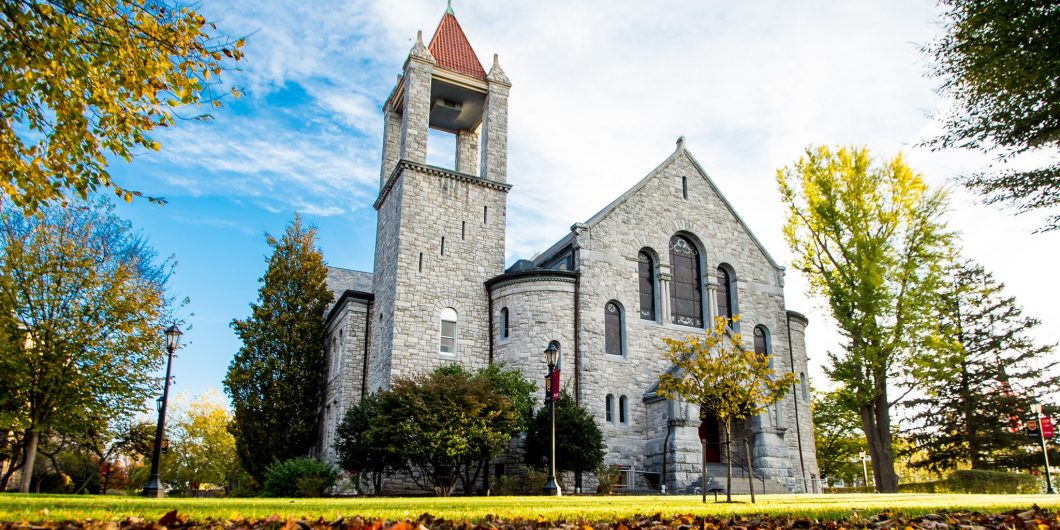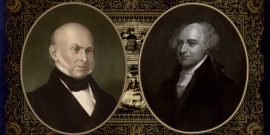We read old books because the authors are the teachers of wisdom and virtue.
Can the University be Reasonable?
Jonathan Marks’s Let’s Be Reasonable: A Conservative Case for Liberal Education announces its intended audience in the subtitle. He’s speaking, in the first instance, to conservatives, indeed particularly to “conservatives like me” who “suppose that the capacity to reason well is widely distributed.” He also addresses himself to “anyone looking for an alternative to the despair that passes for realism in our understanding of the present and possible future of college.” For these audiences, he proposes a modest and moderate attempt to cultivate, as the title says, reasonableness. This is not to be confused with “critical thinking,” that buzzword invoked by admissions professionals and other administrators when they’re trying to sell the liberal arts to skeptical buyers. Nor is it merely instrumental rationality, a method providing us, as Thomas Hobbes would have it, “scouts and spies, to range abroad and find the way to the things desired.”
The point of liberal education, Marks helpfully reminds us, is not to become a clever dialectician, an expert at marshalling arguments for a predetermined position. We’re supposed to cultivate, rather, a disposition to acknowledge and be guided by the force of argument and evidence, a willingness to change our mind when the facts and reasons demand it. In a very important sense, this is the foundation of human freedom, of the liberty at the heart of a liberal education. Accepting reasons and not being dominated by their passions, such people are capable of thinking for themselves and governing themselves. This is a capacity of which they—and perhaps even we, gentle readers—ought to be proud. Marks is to be commended for reminding us—in an engaging and accessible way—what liberal education is—or should be—all about.
To be sure, Marks concedes that there are people—on both the Right and the Left—who either aren’t inclined to listen or are inclined to disagree. There are liberals who would be happy to walk across campus without ever encountering a dissenting conservative voice. They apparently won’t listen, even to someone as reasonable as Marks. I’ll return to them and to the challenge they pose later.
There are also conservatives—at least two sorts of conservatives, I would argue—that reject the “Enlightenment gamble” that Marks proposes and embraces. One sort is practical and essentially anti-intellectual. For them, the university is basically “enemy territory,” a cultural high ground that cannot be retaken and hence needs to be marginalized (to put it nicely). These conservatives love the poorly educated, as Donald Trump once put it, but the highly or liberally educated, not so much.
But there are also conservatives like Patrick Deneen, who believe that Enlightenment rationalism tends to destroy human attachment to and groundedness in tradition. Marks and Deneen have, I think, an interesting and important disagreement, a fuller understanding of which enables us better to come to grips with the challenges facing liberal education. (Full disclosure: I know, respect, and like both men.)
Marks takes as his point of departure a characteristically provocative statement made by Deneen, who says that he agrees in a way with a rather crude attempt by a Leftist Harvard undergraduate to subordinate academic freedom to “academic justice,” which (of course) she understands in egalitarian and intersectional terms. As Marks puts it,
As Korn thinks that the appeal to academic freedom conceals and protects the university’s conservatism, its ties to capitalism, Zionism, heterosexism, and so on, Deneen thinks that the appeal to academic freedom, or the appeal to reason, protects and masks the university’s institutionalized radicalism, its disdain for religion, tradition, family, and so on.
Deneen articulates a vision of academic freedom as (as Marks quotes him) “necessarily limited to efforts to better understand and articulate the truth of the Faith.” This is surely different from the Lockean or Enlightenment rationalism that seems to be the ground of Marks’s reasonableness, but it deserves a fuller articulation than he offers in his Auseinandersetzung with Deneen.
Marks surely knows that “the truth of the Faith” is not some kind of perhaps superrational or irrational limitation on reason; rather, it provides a ground for and embodies, thanks to the Thomistic synthesis of reason and faith, a quite full-blooded rationalism. Human beings are reasonable beings because God created them in His image. They are created to understand, within their creaturely limits, with the reason God gave them, His creation. Indeed, they would seem to have a very strong incentive—nay, a duty—to do so. To be sure, in this conception, reason is not a method and reasonableness is not merely a source of perhaps justifiable pride in one’s own dignity or self-discipline. It is neither a tentative Socratic skepticism, proof against the illusions and delusions to which ordinary human beings are prey, nor the confident nature-conquering constructivism of the Enlightenment and its successors.
Properly cultivated, the pride we come to have in being reasonable can be accompanied by a kind of modesty or humility.
It is tempting to say that Deneen and Marks are latter-day representatives, respectively, of the medieval origins of the university and of the Enlightenment rationalism that coopted it, beginning in the latter part of the eighteenth century. While this cooptation is accomplished in the name of reason (against “superstition”), one of its principal animating forces is, as Jean-Jacques Rousseau (another of Marks’s favorite philosophers) has observed, pride (or amour-propre). The influence and, indeed, prevalence of this motivation will not shock anyone who has spent some time in and among the contemporary professoriate. The degree to which this pride serves “the advancement of learning,” as opposed to the advancement of a particular professor, is, to my mind, an open question, not only in the elite institutions in which Marks and Deneen were educated, but even in those (elite and not so elite) in which they (and I) teach.
To be sure, perhaps there are institutions and processes (e.g., peer review and the tenure and promotion process) to channel these professorial inclinations so that they serve the propagation of knowledge, not mere ambitious place-seeking. Perhaps that’s enough, or at least the best we can hope for, from our colleagues. But Marks seems—rightly, I think—to be after something more, especially for the students. He doesn’t simply want to guard against “the defect of better motives,” but actually to foster the cultivation of those better motives. To his credit, he doesn’t point to one “sure-fire” method that will accomplish this. He quite sensitively indicates the challenges involved and points to some successes, as when students (usually not undergraduates, he concedes) come to accept the norms of a profession. I chalk it up to the mystery of a certain kind of good teaching: you take seriously good and challenging books, ask hard questions, and try to show your students that something important hinges on thinking reasonably about them. The only conviction I have is that this kind of experience is likeliest to occur at a relatively small college, with smallish classes where students and professors have a stake in building and maintaining relationships.
But here I worry that Marks, sober and reasonable as he is, may be playing with fire. Reasonableness—of both the critical and practical sort (to borrow Immanuel Kant’s language)—can serve as a ground for dignity, i.e., proper pride. But the path to pride through the assertion and affirmation of identity is perhaps straighter and more immediately satisfying. Why reasonably set out in the difficult search for the truth when my truth is ready at hand? I have seen plenty of colleagues and students succumb to this temptation.
While revealed religion in the Abrahamic tradition isn’t immune to pride, it at least names it as a sin, indeed, the sin. Believers are constantly reminded that they are not God but, at best, “sub-creators,” to use Tolkien’s term. This is a healthy reminder for academics, especially for those of us who think that when we write, we’re speaking things into existence.
I’m not about to urge Marks to convert to Deneen’s brand of Roman Catholicism or to the faith-and-reason evangelical Protestantism that is the hallmark of (among others) Wheaton and Calvin. Indeed, one of the great glories of American higher education is its pluralism. (I would say diversity, but that has become a loaded term that actually militates against the plurality of views about which reasonable people can productively disagree.) Marks can cultivate his kind of reasonableness and Deneen can cultivate his, and their students (and, one hopes, their colleagues) will be the better for it. They have a good deal in common, as when Marks affirms that “[t]he study of the wisest human beings and the most advanced civilizations brings the deficiencies of all human beings and civilizations to our attention” and that “[l]iberal education…is not in league with ‘the active liberation of the individual from any limiting conditions.’” Properly cultivated, the pride we come to have in being reasonable can be accompanied by a kind of modesty or humility.
I don’t want to succumb to the argument that the apparent triumph of the loudest identitarian voices on our college campuses was inevitable, once the Enlightenment rationalists coopted the university, but I can’t help but think of at least a couple of considerations that point in that direction. The first is the prospective triumphalism to which Immanuel Kant gives voice in his “Idea for a Universal History.” The rational cosmopolitans of the future will care about the past, he says, only to the degree that it foreshadows or contributes to their present perfection. To the degree that we regard ourselves as capable of judging the past, we’re surely not humbled by it. While Kant at least hopes that this attitude is displayed only by rational cosmopolitans, Joshua Mitchell in his provocative American Awakening argues that this kind of judgment, accompanied by condemnation for the sins of the past, is the hallmark of the culturally dominant identitarian forces, not only on campus, but in the wider culture. Those who think of themselves as free from our “original sin(s)” sit in judgment of others—past and present–who bear the marks of those transgressions.
In the end, I’m not quite as reassured as Marks wants me to be. I have not written off America’s non-elite liberal arts colleges and do not regard them as irredeemable. But I expect that what Marks eloquently and effectively describes and celebrates exists more at the margins than in the center of the enterprise. Conservatives should not turn away from American higher education, nor its most characteristic expression, the liberal arts college. But they do need to take care where they send their sons and daughters, not to mention their financial support.



